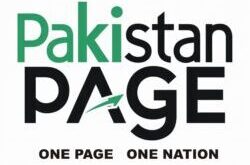Pakistan’s secondhand textile sector bears massive potential for founding circular economy model
Islamabad: The Sustainable Development Policy Institute (SDPI) in partnership with the United Nations Environment Programme (UNEP) and the European Union, organized a workshop titled “Criteria and Guideline Development for Used Textiles Trade” under the framework of the Circularity and Used Textiles Trade in Pakistan.
This workshop aimed to strengthen the framework around Pakistan’s growing secondhand textile sector, fostering sustainable practices and policies.
Asad Naqvi from UNEP appreciated the workshop outcomes for debunking myths about the secondhand textile industry in the country and underlined the need to study early supply chain components of the sectors, particularly the farmers.
As one of the world’s largest importers of used clothing from the EU, Pakistan’s textile market plays a pivotal role in driving the global circular economy. Zainab Naeem, Associate Research Fellow, Head of Circularity, noted the mission’s focus on assessing Pakistan’s textile value chain to enhance sustainable trade practices.
Beatriz Fernandez of UNEP’s Environment and Trade Team emphasized textiles’ economic importance, especially for women, who comprise 45% of the sector’s workforce. However, she highlighted the need to address environmental concerns such as microplastic pollution, which the textile industry contributes to at a rate of 9%.
The workshop provided a platform for experts, industry representatives, and government officials to share insights and foster collaborations. Presentations outlined the current scale of secondhand clothing imports in Pakistan, which saw a 17% increase in 2023-24, totaling 433,651 metric tons and generating over $40 million in revenue.
Mustafa Sattar, CEO of Retex Global, Pakistan’s largest clothing grading facility, discussed the crucial role of reuse in the textile sector, emphasizing that 90% of garments are recycled without water or gas.
Dr. Abid Qaiyum Suleri, Executive Director, SDPI, lauded the initiative’s progress and expressed optimism for the future of Pakistan’s circular economy, particularly with the removal of regulatory duties on secondhand clothing.
Government officials, including Umar Farooq from the Ministry of Commerce, underscored ongoing legislative efforts to establish robust regulations.
This workshop marks a significant step toward a more sustainable and circular textile sector in Pakistan, aligning with UNEP’s goal of minimizing environmental impact and maximizing economic opportunities in a high-impact industry.

